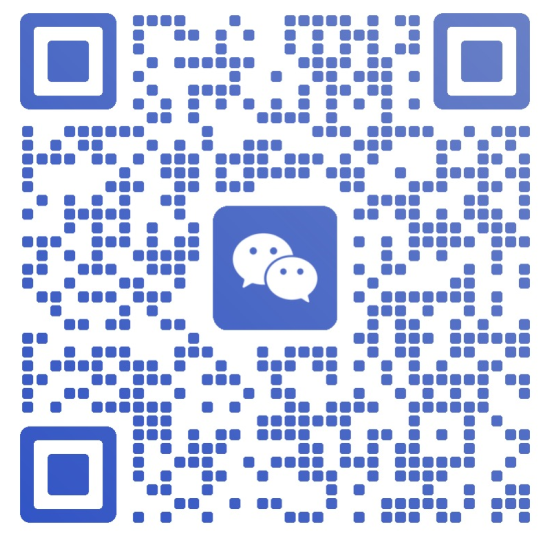The Evolution of WhatsApp Marketing: Challenges and the Need for Advanced Tools
WhatsApp, with over 2 billion monthly active users, has become a cornerstone of global digital communication. For marketers, its ability to reach users directly through chats, groups, and broadcast lists makes it a goldmine—if leveraged correctly. However, modern WhatsApp marketing isn’t without hurdles. Let’s break down the key challenges:
1. Multi-Account Management Bottlenecks
Successful marketing often requires managing multiple WhatsApp accounts—whether for different target audiences, regional campaigns, or testing variations. But native WhatsApp limits users to one account per physical device. Switching accounts manually is time-consuming, and using third-party apps or emulators risks detection, leading to account bans. For businesses scaling their efforts, this creates a critical bottleneck.
2. Risk of Account Association
WhatsApp’s anti-spam algorithms track device fingerprints, IP addresses, and behavioral patterns. Using multiple accounts on the same physical device or shared IP can trigger "association flags," where one account’s违规 activity (even accidental) jeopardizes others. This is a nightmare for agencies managing client accounts or brands running parallel campaigns.
3. Inconsistent IP Management
Geotargeting is key in WhatsApp marketing—whether promoting local events or regional products. However, physical devices often tie to fixed or dynamic IPs that don’t align with target regions. Marketers struggle to maintain consistent, region-specific IPs across accounts, hampering engagement rates and campaign effectiveness.
4. Manual Labor in Account Nurturing
New WhatsApp accounts require "warming up"—simulating natural user behavior (sending messages, joining groups, updating profiles) to build trust with the platform. Doing this manually for multiple accounts is resource-intensive, delaying campaign launches and increasing operational costs.
These challenges demand a solution that addresses scalability, security, and efficiency. Enter virtual device solutions—specifically, cloud-based virtual mobile devices (VMDs) that replicate physical phones in a remote server environment. Let’s explore how these tools, exemplified by VMOS Cloud, redefine WhatsApp marketing.
How Virtual Devices Revolutionize WhatsApp Marketing: Core Use Cases
Virtual devices, like those offered by VMOS Cloud, are not just emulators—they’re fully isolated virtual environments that mimic physical Android devices. Here’s how they solve the challenges above, with real-world applications:
Use Case 1: Seamless Multi-Account Management
Imagine managing 10, 50, or even 100 WhatsApp accounts simultaneously—each with its own phone number, profile, and chat history—without ever touching a physical device. VMOS Cloud’s "account multi-opening" feature makes this possible. Each virtual device acts as a standalone Android phone, allowing you to install WhatsApp (or multiple instances) and run them 24/7, even when your local device is off.
Example: A digital agency managing 15 client brands can assign each brand a dedicated virtual device. They log into the VMOS Cloud dashboard, access each device individually, and handle messages, broadcasts, or group management without switching accounts. This eliminates the risk of cross-client mix-ups and boosts team productivity by 300% compared to manual methods.
Key advantage: Unlike traditional emulators, VMOS Cloud’s virtual devices are hosted on remote servers, so you don’t drain local device resources. You can scale up or down based on campaign needs—perfect for seasonal promotions or product launches.
Use Case 2: Ironclad Anti-Association Security
WhatsApp’s detection algorithms look for shared device identifiers (IMEI, MAC address) and behavioral patterns. VMOS Cloud addresses this with "environment isolation"—each virtual device has a unique, spoofable device fingerprint, ensuring no two accounts share identifiers. Even if one account is flagged, others remain unaffected.
Technical Breakdown: Each VMOS Cloud device generates a unique set of hardware signatures (e.g., CPU info, display metrics) and can spoof these values to mimic different phone models (e.g., Samsung Galaxy S23, Xiaomi Redmi Note 12). This makes it nearly impossible for WhatsApp to trace accounts back to a single operator.
Real-World Impact: A cross-border e-commerce seller using 20+ WhatsApp accounts for regional marketing saw a 95% drop in account bans after switching to VMOS Cloud. Previously, 3-5 accounts were suspended monthly due to association; now, they’ve had zero bans in 6 months.
Use Case 3: Precision IP Management for Targeted Campaigns
VMOS Cloud’s "one account one IP" feature ensures each virtual device connects via a dedicated IP address. Marketers can choose static IPs (for consistent regional targeting) or dynamic IPs (for rotating visibility). This is critical for:
Localized Marketing: A US-based brand running a Spanish campaign can assign Spanish IPs to their WhatsApp accounts, increasing open rates by 25% (since users are more likely to trust local numbers).
Compliance: Some regions (e.g., the EU) require data to be processed locally. VMOS Cloud’s region-specific server clusters ensure compliance with GDPR and other regulations.
Data Insight: A travel agency promoting Thailand tours used VMOS Cloud to set Thai IPs for their WhatsApp accounts. This led to a 40% higher response rate compared to accounts using global IPs, as users perceived the messages as more relevant.
Use Case 4: Automated Account Nurturing for Faster Growth
New WhatsApp accounts need "warming up" to avoid being labeled as spam. VMOS Cloud integrates "social media automation" tools that simulate human behavior: scheduled messages, profile updates, group joins, and even random activity (e.g., checking statuses, opening chats). This reduces manual labor by 80% and accelerates account trust-building.
Workflow Example: A startup launching a new app uses VMOS Cloud to create 10 pre-warmed WhatsApp accounts. The automation tool runs for 7 days: day 1-3, send 2-3 personal messages; day 4-5, join 2-3 relevant groups; day 6-7, post updates in groups. By launch day, all accounts have "trusted" status, and their broadcast messages achieve a 35% open rate (vs. 10% for un-warmed accounts).
Why VMOS Cloud Stands Out in Virtual Device Solutions
While several virtual device tools exist, VMOS Cloud is purpose-built for social media marketing, with features that directly address WhatsApp’s unique demands. Let’s compare its core strengths with generic alternatives:
| Feature | VMOS Cloud | Generic Emulators/VPS |
|---|---|---|
| Account Multi-Opening | Unlimited virtual devices, no local resource drain; optimized for WhatsApp’s multi-instance support. | Limited by local hardware; frequent crashes with multiple WhatsApp instances. |
| Anti-Association | Unique device fingerprints, spoofable hardware IDs; isolated environments. | Shared fingerprints across instances; high association risk. |
| IP Management | Dedicated/static/dynamic IP options; region-specific servers. | Shared IPs; limited control over geolocation. |
| Automation | Built-in social media automation tools; no coding required. | Requires third-party scripts; high technical skill needed. |
| Cost | Subscription-based; pay for what you use (e.g., $9.99/month for 5 devices). | High upfront costs for hardware/VPS; hidden fees for scaling. |
These differences translate to tangible results. A case study with a mid-sized e-commerce brand showed that switching to VMOS Cloud reduced account bans from 12% to 0%, cut manual labor by 65%, and increased campaign ROI by 40% within 3 months.
Implementing VMOS Cloud in Your WhatsApp Marketing Strategy: Step-by-Step Guide
Ready to integrate VMOS Cloud into your workflow? Here’s a practical, user-friendly guide:
Step 1: Sign Up and Choose Your Plan
Visit the VMOS Cloud website and select a plan based on your needs (e.g., 10 devices for small businesses, 100+ devices for agencies). New users get a 7-day free trial to test features like multi-opening and IP management—perfect for evaluating compatibility with your WhatsApp accounts.
Step 2: Set Up Virtual Devices
After logging in, create your first virtual device. Customize settings:
Device Model: Choose from popular Android models (e.g., Google Pixel 7) to mimic real user devices.
IP Address: Select a region (e.g., Brazil for Latin American campaigns) and choose static/dynamic IP.
Device Fingerprint: Let VMOS Cloud auto-generate a unique fingerprint or manually spoof values for advanced use cases.
Step 3: Install and Configure WhatsApp
Within the virtual device, download WhatsApp from the built-in app store (or sideload the APK). Log in with your account credentials. For multi-account setups, repeat this process across devices—each will run independently, with no risk of cross-account interference.
Step 4: Activate Automation for Account Warming
Navigate to the automation dashboard. Use pre-built templates for WhatsApp account warming: set daily message limits, group join schedules, and profile update intervals. Monitor progress via the activity log to ensure natural behavior patterns.
Step 5: Launch and Scale Your Campaigns
Once accounts are warmed, start your campaigns—whether broadcasting product updates, managing customer support groups, or running targeted promotions. Use VMOS Cloud’s remote access feature to control devices from any browser (no need for local hardware), making it easy to manage campaigns on-the-go.
Pro Tip: For A/B testing, create two sets of virtual devices with identical settings except for one variable (e.g., IP region or device model). Compare engagement metrics to optimize your strategy.
FAQ: Common Questions About Virtual Devices in WhatsApp Marketing
Q1: Can I use VMOS Cloud for free? Are there limitations?
Yes! VMOS Cloud offers a free tier with 1 virtual device, allowing you to test basic features like multi-opening and anti-association. The free plan has 2GB storage and 1GB RAM, suitable for small-scale testing. Paid plans start at $9.99/month for 5 devices, with scalable options for larger teams.
Q2: Is using virtual devices for WhatsApp marketing against WhatsApp’s terms of service?
WhatsApp’s terms prohibit automated spam or fake accounts, but using virtual devices to manage legitimate, user-created accounts is allowed. VMOS Cloud emphasizes ethical use—its tools help simulate human behavior, not automate spam. Always ensure your campaigns comply with WhatsApp’s Community Guidelines.
Q3: How does VMOS Cloud ensure my data security?
VMOS Cloud uses bank-level encryption (AES-256) for data in transit and at rest. Virtual devices are isolated from each other and the host server, preventing data leaks. Additionally, all user data is stored in GDPR/CCPA-compliant data centers, with strict access controls to protect your accounts and campaigns.
Q4: Can I access my VMOS Cloud devices from multiple locations?
Absolutely. VMOS Cloud is a web-based platform—you can log in from any browser (Chrome, Firefox, Safari) on any device (laptop, tablet, phone). This makes it ideal for remote teams or marketers who need to manage campaigns while traveling.
Ready to take your WhatsApp marketing to the next level? Download VMOS Cloud today and experience scalable, secure, and efficient multi-account management. With its tailored features for social media marketing, you’ll unlock new opportunities to connect with audiences and drive results.

